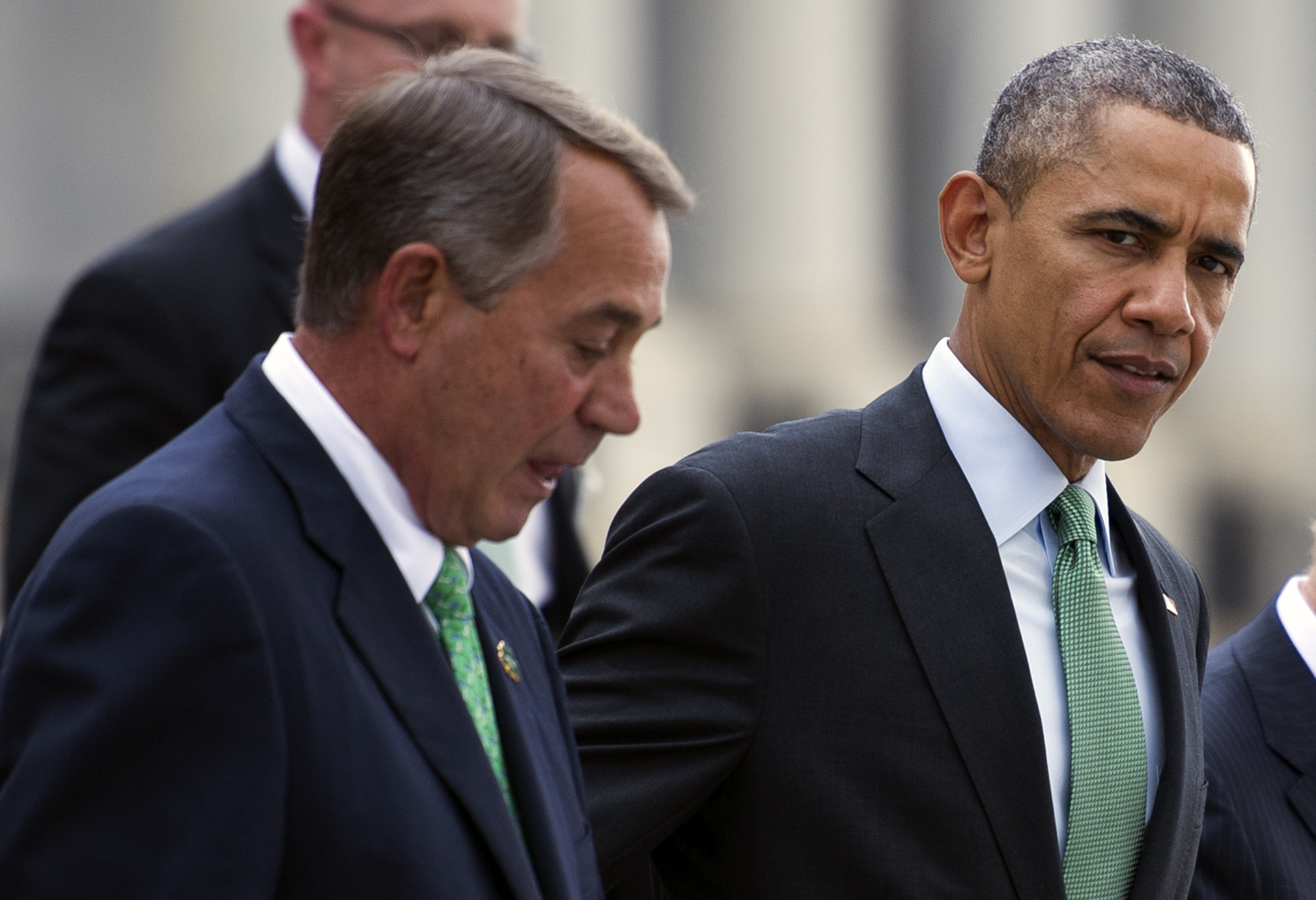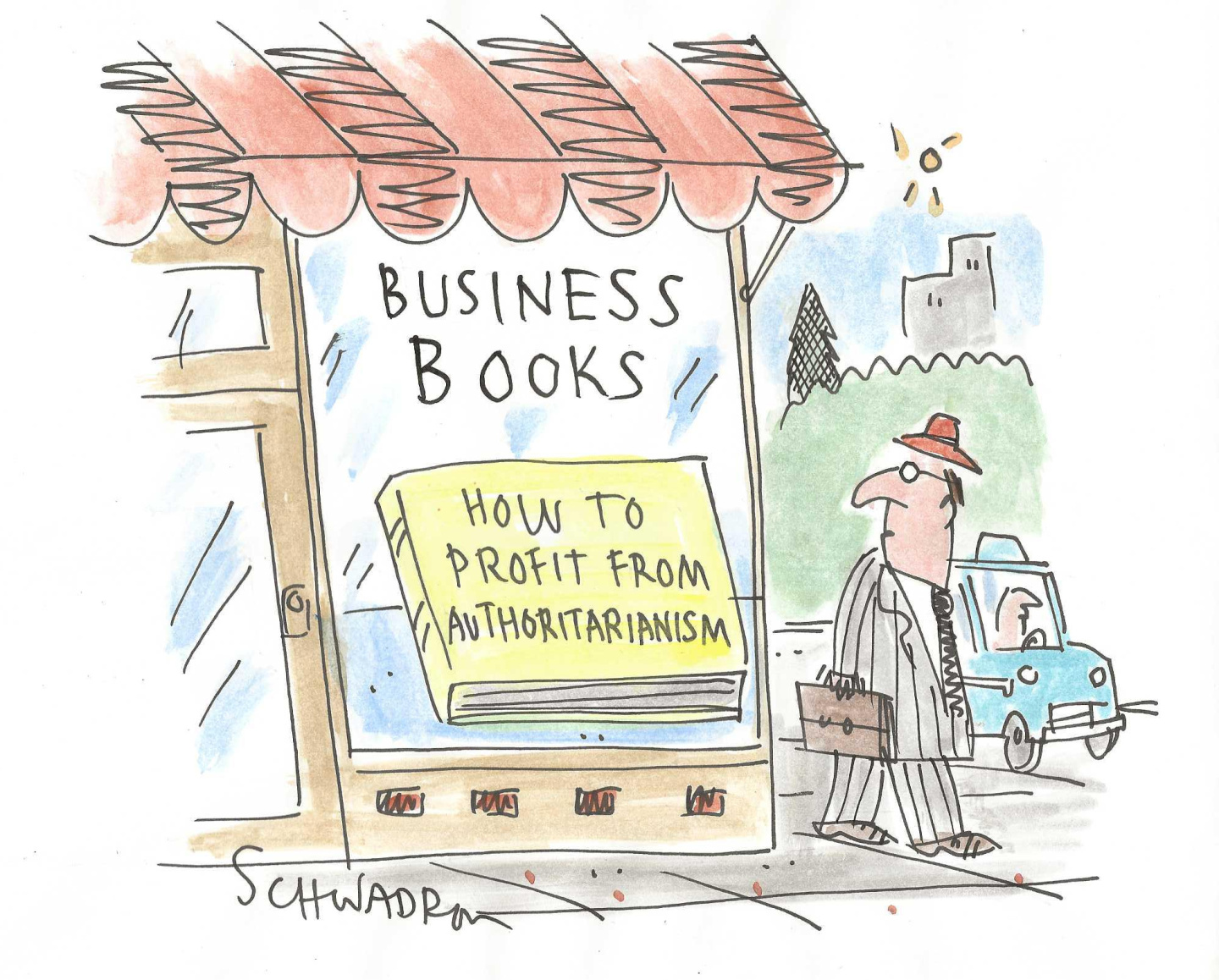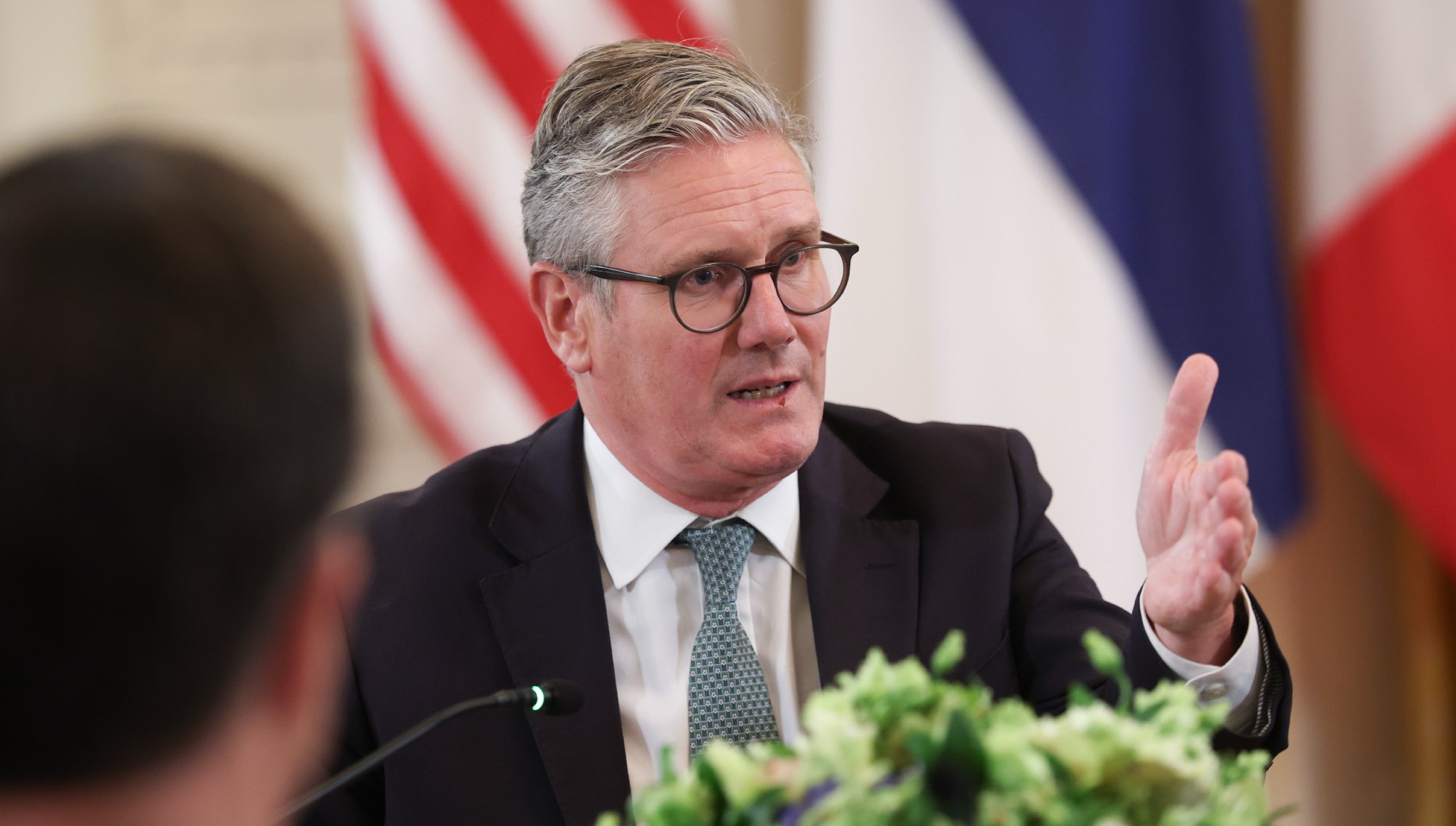The U.S. political system has too many vetoes
No wonder people can't follow what's happening in Washington


When you make a purchase through links on our site, we may earn a commission
One of the things that is constantly annoying average people in America is how hard it is to figure out who is responsible for what in Washington. Our legislative structure is hellishly complex, our politicians are generally mediocre, and our political media is screechy and incompetent. It's not so surprising that surveys routinely find that people can't even correctly identify which party is in charge of which branch of Congress.
But now that Republicans are in charge of both the House and the Senate — and President Obama is forced to veto things like a law permitting the Keystone XL pipeline, or a conservative union-busting measure — the stakes are somewhat clarified, argues Rob Goodman:
The Week
Escape your echo chamber. Get the facts behind the news, plus analysis from multiple perspectives.

Sign up for The Week's Free Newsletters
From our morning news briefing to a weekly Good News Newsletter, get the best of The Week delivered directly to your inbox.
From our morning news briefing to a weekly Good News Newsletter, get the best of The Week delivered directly to your inbox.
Just one thing is new — the possibilities for political theater. Take the case of Keystone. Politics does not get much clearer than the president’s forthright statement that the pipeline "has earned my veto" — or, for that matter, than Speaker John Boehner’s response that the veto was "a national embarrassment." Ultimately, that kind of stark clarity is just what helps us hold political parties responsible for their positions. Veto theater, even when it does little to drive policy, is good for democratic accountability. [Politico Magazine]
On the narrow point that things are now marginally clearer than they were in 2014, when it was Harry Reid bottling this sort of stuff up in the Senate, Goodman is probably right. But his argument is too clever by half. The presidential veto provides nowhere near the "stark clarity" of a regular parliamentary system, where the majority party simply gets to implement their agenda. In fact, the U.S. has far too many vetoes.
Because the presidential veto is only one of many. Effectively, the House and Senate both have one, since either one can stop legislation from being passed. The committees in both chambers have a more limited ability to delay or prevent things, as do individual senators. And don't forget the Supreme Court, which can dynamite legislation after the fact so long as they can cook up some reasonable-sounding legal justification that aligns with their political preferences.
Passing any sort of important law is such a nightmare in the U.S., it's no wonder Americans got (theoretically) universal health insurance 125 years after Germans did.
Compare that to the streamlined procedure available in, say, New Zealand. As Dylan Matthews explains, it has a nifty system ensuring both proportional and local representation, but the major advantage over the American Constitution is that it doesn't have an upper house or a president. Instead, they have a single legislative body, and the executive is run by a cabinet and prime minister elected right out of parliament.
A free daily email with the biggest news stories of the day – and the best features from TheWeek.com
Instead of two houses, one elected on stupendously anti-democratic rules, the other gerrymandered to the eyeballs, and a president selected via the incomprehensible and utterly insane Electoral College, New Zealand has one house and one winning party, the leader of which becomes the leader of the nation. Our natural human tendency to regard the most prominent politician as responsible for what happens politically is thus a reasonable heuristic instead of an unfortunate misconception.
Because let's be honest here: Almost nobody even noticed either the Keystone XL or the union-busting veto, and precisely nobody will remember it come the 2016 election. The New Zealand single-house system about encompasses the average person's political attention span.
Of course, we're not going to be able to abolish the Senate, much less the presidency, without an earthshaking political crisis. But if Matt Yglesias is right, and our crappy political structure is eventually doomed, we ought not to fetishize our current system. Sensible constitutions don't need vetoes.
Ryan Cooper is a national correspondent at TheWeek.com. His work has appeared in the Washington Monthly, The New Republic, and the Washington Post.
-
 September 6 editorial cartoons
September 6 editorial cartoonsCartoons Saturday’s political cartoons include profiting from authoritarianism, and the National Guard entering the CDC
-
 Should Britain withdraw from the European Convention on Human Rights?
Should Britain withdraw from the European Convention on Human Rights?Talking Point With calls now coming from Labour grandees as well as Nigel Farage and the Tories, departure from the ECHR 'is starting to feel inevitable'
-
 5 outspoken cartoons about Epstein survivors taking center stage
5 outspoken cartoons about Epstein survivors taking center stageCartoons Artists take on cover-ups, Trump surrounded, and more
-
 Ghislaine Maxwell: angling for a Trump pardon
Ghislaine Maxwell: angling for a Trump pardonTalking Point Convicted sex trafficker's testimony could shed new light on president's links to Jeffrey Epstein
-
 The last words and final moments of 40 presidents
The last words and final moments of 40 presidentsThe Explainer Some are eloquent quotes worthy of the holders of the highest office in the nation, and others... aren't
-
 The JFK files: the truth at last?
The JFK files: the truth at last?In The Spotlight More than 64,000 previously classified documents relating the 1963 assassination of John F. Kennedy have been released by the Trump administration
-
 'Seriously, not literally': how should the world take Donald Trump?
'Seriously, not literally': how should the world take Donald Trump?Today's big question White House rhetoric and reality look likely to become increasingly blurred
-
 Will Trump's 'madman' strategy pay off?
Will Trump's 'madman' strategy pay off?Today's Big Question Incoming US president likes to seem unpredictable but, this time round, world leaders could be wise to his playbook
-
 Democrats vs. Republicans: which party are the billionaires backing?
Democrats vs. Republicans: which party are the billionaires backing?The Explainer Younger tech titans join 'boys' club throwing money and support' behind President Trump, while older plutocrats quietly rebuke new administration
-
 US election: where things stand with one week to go
US election: where things stand with one week to goThe Explainer Harris' lead in the polls has been narrowing in Trump's favour, but her campaign remains 'cautiously optimistic'
-
 Is Trump okay?
Is Trump okay?Today's Big Question Former president's mental fitness and alleged cognitive decline firmly back in the spotlight after 'bizarre' town hall event
